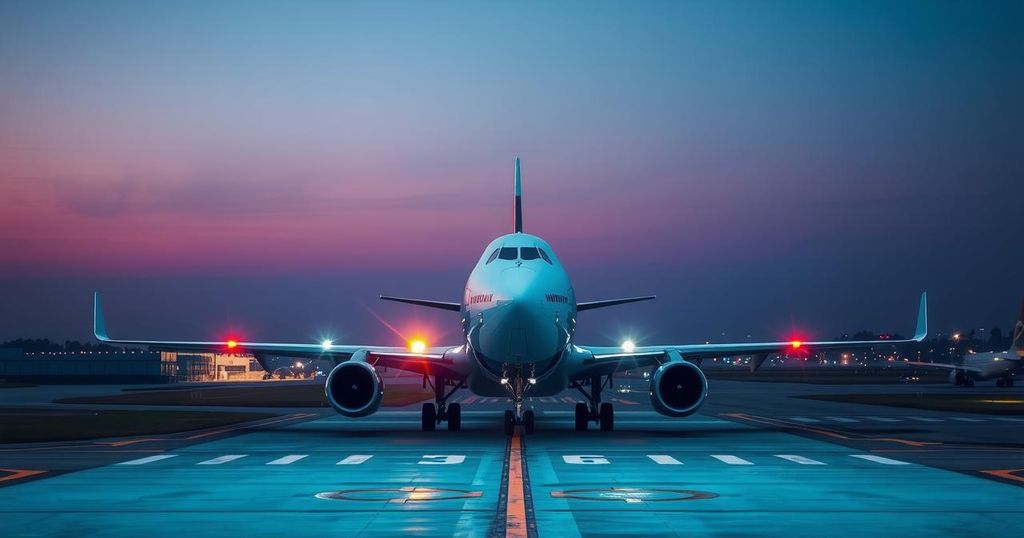Venezuela to Resume Acceptance of U.S. Deportation Flights Amid Controversies

Venezuela will resume accepting U.S. deportation flights, motivated partly by concerns over the treatment of Venezuelan migrants in El Salvador. The agreement follows increased pressure from the Trump administration and invokes an obscure wartime law to facilitate deportations. This decision comes amidst ongoing human rights concerns and legal challenges regarding the treatment of deportees.
On Saturday, the Venezuelan government confirmed its decision to resume accepting deportation flights from the United States, aligning with the Trump administration. This development follows recent criticisms about the treatment of Venezuelan migrants being sent to harsh prisons in El Salvador, where they reportedly faced significant due process violations. A Venezuelan government representative emphasized the notion that “Migration isn’t a crime” while denouncing the plight of their citizens abroad.
The White House did not provide any immediate comments regarding this agreement, although Richard Grenell, an ally of President Trump, previously indicated that Venezuela was willing to accept the flights. This agreement comes in the wake of a suspension of cooperation by Venezuelan President Nicolás Maduro, which initially responded to the revocation of a Biden-era oil policy favorably affecting Venezuela’s economy.
The Trump administration has faced substantial pressure to facilitate the repatriation of Venezuelans, threatening new sanctions should Maduro refuse to accept deported citizens. Venezuelans have increasingly crossed the U.S.-Mexico border due to the country’s dire economic and social conditions, which Maduro attributes to U.S. sanctions against his regime.
The renewed deportation flights arise amid a situation where the Trump administration invoked an obscure wartime law from 1798, known as the Alien Enemies Act, to deport Venezuelan migrants to El Salvador. This agreement has raised serious concerns about human rights abuses in prisons under the control of El Salvador’s authoritarian leadership. A recent federal ruling temporarily blocked deportations under this authority, questioning the legality of such actions.
Despite claims from the Trump administration that all deportees to El Salvador were criminal gang members, considerable doubt remains regarding the backgrounds of those individuals, with advocates stating that many were unfairly categorized. Recent tensions between Trump and the judiciary regarding deportation policies have ignited calls for impeachment against a judge who issued a ruling against the administration.
The Saturday agreement is expected to expedite the administration’s mass deportation efforts, a cornerstone promise of Trump’s campaign. Military aircraft have been employed, and movements to third countries have been initiated under the guise of this renewed strategy. Just a day prior, it was announced that a Biden-era immigration program for citizens from Cuba, Haiti, Nicaragua, and Venezuela would be terminated, further complicating the immigration landscape for these communities.
The Venezuelan government’s agreement to accept U.S. deportation flights signifies a notable shift in policy amidst ongoing tensions regarding the treatment of migrants. The implications of this agreement extend to human rights concerns surrounding El Salvador’s prison conditions and the broader implications for U.S.-Latin America relations. The situation remains fluid, with developments potentially impacting both legal and humanitarian aspects of immigration policy under the Trump administration.
Original Source: www.nytimes.com







